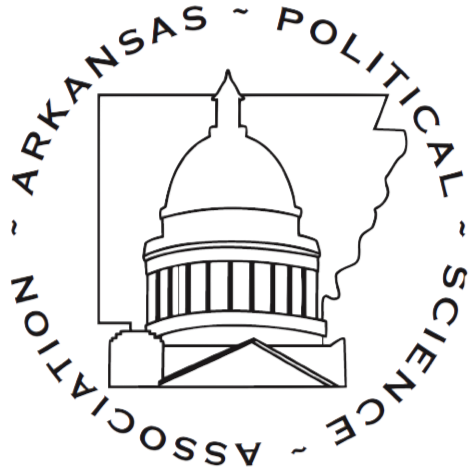
This is the first in a series of interviews with political scientists from around the state of Arkansas and members of our association. Every semester, we will release an interview with a different political scientist doing exceptional work. Today, we interview Professor Mark Mullenbach about collegiate Model United Nations. Mullenbach is an Associate Professor of Political Science at the University of Central Arkansas, where he has taught for the last 18 years. His subfields include International Relations and Comparative Politics. His teaching includes upper-division courses on the United Nations, International Law, American Foreign Policy, Russian Foreign Policy, China & International Politics, Governments & Politics of Europe, and International Terrorism & Counterterrorism. This semester, he is teaching a new course, Cyber Security Law & Politics, for the first time. With UCA Professor Mark Elrod, he serves as a faculty advisor for the UCA Model United Nations (MUN) student organization. This interview was conducted by ArkPSA Secretary, Matt Evans, over email. It has been edited for clarity and brevity.
Q: What is Model UN? What is its relationship to political science and US foreign policy?
Model United Nations is a educational, experiential learning program that involves interactive student simulations of UN bodies such as the Security Council and General Assembly. Along with UCA’s Department of Political Science, many political science departments around the country sponsor Model UN students organizations and Model UN conferences for high school and college students. Model UN is particularly popular with students of political science and international relations, but students in other disciplines also participate in Model UN.
Q: The University of Central Arkansas has a long history with Model United Nations conferences. Could you tell us about it? Who are some of the people and groups involved; what are some of the highlights of this history?
UCA has hosted the annual Arkansas Model United Nations (AMUN) conference for high school students for more than five decades. Established by Professor Sims McClintock, the first AMUN conference was held at UCA in January 1967. Since then, more than 25,000 high school students from Arkansas and neighboring states have attended the annual two-day conference at UCA. Keynote speakers at the annual AMUN conferences have included several members of Congress, Arkansas government officials, foreign diplomats, and other prominent individuals.
Q: How long have you been involved with Model UN at UCA? What has your role been? What have you experienced in this role?
After coming to UCA, I served as Coordinator of the AMUN Conference from 2001 to 2018. I currently serve as Faculty Advisor Liaison for the AMUN Conference (Dr. Elrod is the current AMUN conference coordinator). The coordinator role involved a variety of administrative tasks, including recruiting and training UCA and other college student staff members for the conference. I have also served as faculty advisor for the UCA Model UN student organization since about 2002.
Q: What highlights has your Model UN student organization experienced in your advising role? What conferences have you taken your teams to and what are the highlights at those conferences?
As faculty advisor, I have taken UCA students to out-of-state collegiate Model UN conferences in St. Louis and New York City. We have also participated in each of the eight Arkansas Collegiate Model United Nations (ACMUN) conferences held in Russellville and Conway since 2011. Throughout the past 18 years, UCA students have represented dozens of countries and won several outstanding delegate and delegation awards at collegiate Model UN conferences. At the National Model United Nations (NMUN) conference in New York City in 2013, five UCA students represented the Pacific island country of Tuvalu.
Q: What’s new in Model UN at UCA and the state of Arkansas?
Since 2017, UCA hosts one of the few Model United Nations summer camps in the country. The summer camp, which has been funded by a grant from the Arkansas Department of Education (ADE) to the UCA Department of Political Science, provides a week-long experiential learning opportunity to 35 to 45 high school students from the state of Arkansas, including a simulation of the UN General Assembly and a Global Trivia Competition.
Q: How do you think Model UN helps advance course learning outcomes in various political science courses, and political science more generally?
Students who participate in Model UN have the opportunity to learn about foreign policies and international politics through hands-on, interactive simulations of UN bodies. Representing assigned countries, students develop their research, writing, speaking, and critical thinking skills as they prepare for and participate in Model UN conferences.
Q: What do you think students gain from participating in Model UN — not just in learning content, but in advancing their career goals of becoming better people?
Probably most importantly, students learn how to effectively communicate with their peers and work with other students to resolve international problems. These skills in particular are useful in almost all professional careers. Many individuals who participate in Model UN as students look back on their Model UN experiences as important milestones in preparing for their future professional careers.
Q: What advice could you give to those starting or in their infancy with Model UN programs at their schools?
I would advise teachers and professors starting Model UN programs to try to identify students with an interest in international affairs to take the lead in their respective Model UN groups. With good student leaders, a Model UN group will be more likely to be successful. It is also important for faculty advisors to work to keep the momentum going after participating in the first few Model UN conferences. After particular student leaders graduate, it is important for faculty advisors to encourage new student leaders to step into leadership positions. After a couple or so years, most Model UN groups have enough momentum to keep going on their own, but faculty advisors are always going to be important for the success of Model UN programs.
